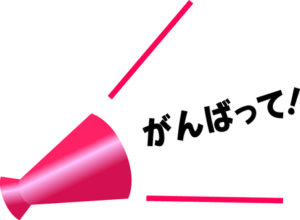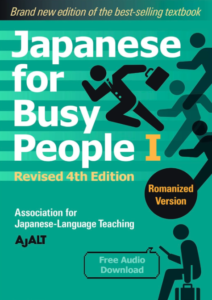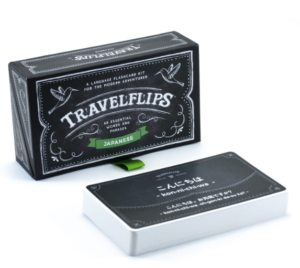Welcome to the world of Japanese slang! 😆
Learning a new language can be tough, but it doesn’t have to be boring. In this guide, I’ll ditch the grammar jargon and dive into 10 essential slang phrases that’ll make you sound like a local in no time. Hope you enjoy!
1. “Suimasen” (すみません): The Swiss Army Knife of Apologies
“Suimasen” is the go-to phrase for any situation that requires an apology, from bumping into someone to being late for a meeting. It’s so versatile that you can even use it to ask for help or get someone’s attention.

Fun fact: While “sumimasen” is the grammatically correct form, many Japanese people pronounce it as “suimasen.” Don’t worry, they’ll understand you either way!
Pro tip: When asking someone if they smoke, you can use the same pronunciation: “Tabako suimasu ka?” (タバコすいますか?) means “Do you smoke?” Your answer can be “Suimasen” means “No, I don’t smoke.” LOL. In this case, you CANNOT use “Sumimasen” because it is a different word!
2. “Daijoubu desu” (だいじょうぶ です): The All-Purpose “I’m Fine”
“Daijoubu desu” is your answer to any question about your well-being. It means “I’m fine,” “I’m okay,” or “No problem.” Use it when someone asks “Daijoubu desu ka?” (だいじょうぶです か?), which means “Are you okay?”
If you use it with your friend, you can just say “Daijoubu?” which sounds more casual.

Pro tip: If you want to express genuine concern, you can say “Daijoubu desu ka? Nanika arimashita ka?” (だいじょうぶですか?何かありましたか?), which means “Are you okay? Is there anything wrong?”
3. “Mou ii desu” (もう いいです): “No, Thank You”
“Mou ii desu” “Mou ii desu” is a polite way to say “No, thank you” when someone offers you another serving of food or more help. It means “I don’t need any more.”

Fun fact: You can also say “Mou daijoubu desu.” which sounds a little bit more polite. It means “No, thank you” in the above mentioned situations.
“Daijoubu” is a very useful word!!! 😆
Pro tip: If you want to emphasize your gratitude, you can add “Arigatou gozaimasu” (ありがとう ございます), which means “Thank you very much.”
4. “Matte kudasai” (まって ください): The Universal “Wait a Minute”
“Matte kudasai” is your go-to phrase when you need someone to wait for you. It means “Please wait” or “Hold on a moment.” Use it when you’re grabbing your wallet at the checkout or trying to catch your breath after running up the stairs.

Fun fact: You can also use “Chotto matte kudasai” (ちょっと待って ください), which means “Wait a sec” or “Just a moment.” “Chotto” means “a little bit”.
To use it with friends, just “Matte” and “Chotto matte” are good.
5. “Mou dame desu” (もうだめです): The Emphatic “I Can’t Take It Anymore”
“Mou dame desu” is a strong expression of exasperation or defeat. It means “I can’t take it anymore” or “I give up.” Use it only when you’re feeling overwhelmed or frustrated.

Pro tip: If you want to express your frustration in a more lighthearted way, you can say “Mou iya desu” (もういやです), which means “I’m done with this” or “I don’t want to do this anymore.”
6. “Mou sugu desu” (もうすぐです): The Reassuring “It’ll Be Ready Soon”
“Mou sugu desu” is a comforting phrase that means “It’ll be ready soon” or “Just a little bit longer.” Use it when you’re keeping someone waiting, like when you’re making dinner or running late for an appointment.

Pro tip: If you want to apologize for the wait, you can add “Mou sugu desu. Osoreirimasu” (もうすぐです。おそれいります), which means “It’ll be ready soon. I’m sorry for the wait.”
7. “Yatta!” (やった!): The Exuberant “I Did It!”
“Yatta!” is a celebratory exclamation that means “I did it!” or “Yes!” Use it when you achieve a goal, pass a test, or win a game.

Fun fact: You can also use “Yatta ne!” (やったね!), which means “We did it!” or “Congratulations!”
8. “Kekkou desu” (けっこうです): The Firm “No, Thank You”
“Kekkou desu” is a more direct way to say “No, thank you” when you’re declining an offer or request. It means “I don’t want to” or “I’d rather not.” Use it when you’re not interested in something or when you have other plans.

Pro tip: If you want to soften your refusal, you can add “Doumo arigatou gozaimasu, demo kekkou desu” (どうもありがとうございます、でも、けっこうです), which means “Thank you very much, but I’d rather not.”
Just be careful how you say it. The tone of your voice always matters just like any other language.
9. “Wakarimasen” (わかりません): The Honest “I Don’t Understand”
“Wakarimasen” is your go-to phrase when you’re lost or confused. It means “I don’t understand” or “I don’t get it.” Use it when someone is speaking too quickly or using unfamiliar words.

Pro tip: If you want to ask someone to repeat or clarify something, you can say “Wakarimasen. Mou ichido oshiete kudasai” (わかりません。もういちどおしえてください), which means “I don’t understand. Could you please explain it again?”
10. “Douzo” (どうぞ): The Polite “Please” and “Go Ahead”
“Douzo” is a versatile word that can be used to say “please” or “go ahead.” Use it when offering something, inviting someone to do something, or holding the door open for someone.

Fun fact: You can say “Douzo douzo” 2 times if somebody is hesitant to do something.
Bonus Phrase: “Ganbatte!” (がんばって!): The Encouraging “Good Luck!”
“Ganbatte!” is a common phrase used to encourage someone who is taking on a challenge. It means “Good luck!” or “Do your best!” Use it when someone is about to take a test, give a presentation, or compete in an event.

Pro tip: You can also use “Ganbatte ne!” (がんばってね!) to express your support for someone’s efforts. It means “I believe in you!” or “You can do it!” It is a very nice phrase that you should know.
Highly recommended learning goods
Learning a new language should be fun and engaging!
That’s why I’m excited to share some highly recommended Japanese Flash Cards with you.
This Flash Cards set is perfect for busy learners on the go. It’s small and portable, so you can take it with you wherever you go. And it covers all the essential vocabulary and phrases you need to know, including commonly used slang expressions.
I highly recommend this Flash Cards set to anyone who wants to learn Japanese quickly and effectively.





Comments